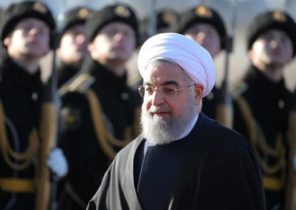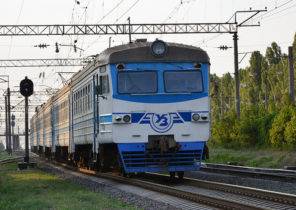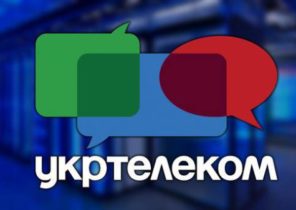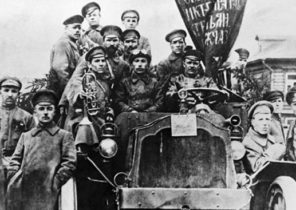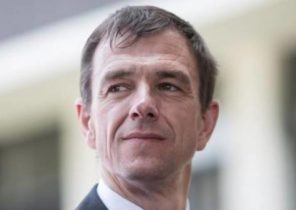To improve the performance and enhance the international rankings of Russian universities hire foreign teachers, creating special conditions of work. This often leads to the problem of “split University” and reduces the effectiveness of efforts to reform higher education in Russia.
In the struggle for international ratings
Eight years ago, in the may 2012 Executive orders, President Vladimir Putin instructed the government to develop an action plan for the development of leading Russian universities to improve their ranking among the leading world scientific and educational centers. Thus arose the project 5-100, according to which by 2020 five Russian universities were supposed to be among the best universities in the world — due to the increase of publications in international journals, the increasing number of foreign students and expanding cooperation with foreign scientists.
The main strategy for achieving ambitious goals was to attract to Russia the foreign teachers and students. It was expected that foreign scientists will help universities to increase the number of publications in international scientific journals, and will introduce Russian students to international academic culture and a new style of teaching.
Although the targets of internationalization were established in all Russian universities, only 21 of them received Federal funding for this purpose.
At these universities were created special international offices to work with foreign scientists and students. To create more attractive conditions for foreign teachers, some universities introduced Western hiring mechanisms. In particular, the Higher school of Economics was introduced permanent professorial position without limitation of the term of employment (tenure).
At first glance, the 5-100 project looks successful. According to the website of the project, starting in 2012, the share of foreign teachers in the total number of employees at Russian universities increased more than five times. Universities reporting the creation of hundreds of new long-term and short-term teaching positions for foreign scientists.
However, as shown by my research, involvement of foreign lecturers can lead to problems of internal “divisions” of the host universities. And this, in turn, reduces the effectiveness of efforts to reform higher education in Russia.
Who and why is coming to work in Russia?
Most foreign teachers are concentrated in Moscow and St. Petersburg. A substantial number also works in the universities of Tyumen, Tomsk and the Far East, financed by the program 5-100.
Foreign scientists coming to Russia, vary teaching experience, and length of the contracts. Those who just received his doctoral degree (PhD), often come under long-term contract, whereas the more experienced professors were more likely to work on short-term contracts, sometimes only for a few weeks. There are doctoral students working on their theses and looking forward to the additional research and teaching experience.
In 2017, I conducted 8 interviews with foreign teachers working in various Russian universities under contracts from one year to three years.
They arrived in Russia in the period from 2014 to 2017 — at the early stages of the project 5-100. My respondents taught mostly at universities in Moscow and St. Petersburg. More than half of them represented universities funded by project 5-100. Most majored in the Humanities and come from the United States and Europe, including Italy and Israel. Knowledge of the Russian language, none of them was required, since most international programs are taught in English.
Because Russian universities promised to foreigners, the level of wages comparable to salaries in American universities before taxes, and the cost of living in most Russian cities is considerably lower than in the us, it did work in Russia financially attractive — especially for young scientists who have difficulty in finding work in the highly competitive Western academic markets.
Special working conditions
Universities invited teachers create conditions that differ significantly from the conditions of work of their Russian colleagues.
According to the young scientist, who worked in Moscow, the novice foreign teacher can earn in a Russian University as much as “best teacher” at the same University in the same specialty. Salaries may be comparable, if one of our Russian colleagues will publish at least one article a year in peer-reviewed English-language journal. Other my interlocutor claimed that his Russian colleagues are paying much less, about one-fifth of his salary. In any case, inequality is evident and it creates tension in the relations of foreign and Russian colleagues.
In addition to the inequality in wages there is a considerable disparity in the lecture load. Most foreigners it is 1:1 — they are required to teach one course in fall and spring semesters. For comparison, the Russian lecturers have, as a rule, load 4:4.
Low load is provided by foreign teachers that they had the opportunity to spend more time working on the publications. As noted by one Respondent, it was specifically discussed during the interview process in recruitment.
The American Professor, with whom I spoke, noted that even with the extra classes with the students they taught in universities for free, their teaching load in Russia was substantially less than during their first job in the United States.
Excessive emphasis on publication causing concern among foreign teachers because it distorts the priorities of their work in Russia. According to one of my interlocutors, it seems that publications in the Western journals — “the only thing universities care taking” and not pedagogy or the development of new academic culture.
University bureaucracy
The interlocutors talked about the difficulties they experienced when interacting with a University bureaucracy. Many were shocked by the number of documents they had to fill out to get paid, as well as restrictions on time spent outside of Russia — it is officially regarded as non-working time. Some respondents complained about how difficult it is to take into account the division of vacation time to be home, and various academic events conferences and other forms of academic activities. This problem was especially characteristic of HSE.
The General opinion of the respondents, the dominance of bureaucracy prevents the universities to create an environment conducive to the prosperity of academic freedom and intellectual culture. The emphasis on ratings also has a negative impact on the intellectual culture of Russian University education.
My companion, who arrived in Russia from Europe, noted that the interest in increasing the number of publications and changes in teaching in Russian universities is dictated by a desire not so much to create a new academic culture, how to move through a scale rating. This makes Russian universities more “business-oriented” structures. This distinguishes them from many Western universities with a deeper tradition of intellectual life.
“Split University”
Inequality of working conditions creates Russian lecturers the perception of unfairness and undermines the idea of collegiality, which is actually sacrificed to the prestige associated with the chair of foreign teachers.
My respondents noted tensions with the Russian colleagues not only due to differences in load and salary. No less significant are the differences in approaches and philosophy of teaching.
Foreign teachers talked about the resistance of the host universities of the “Western” manner of teaching, which is characterized by an interactive approach and egalitarian relationships with students. Local teachers-veterans were reluctant to part with the more conventional standardized learning models, which are characterized by a hierarchical approach, dogmatism and lack of critical analysis of information.
Tensions within host universities was intensified because they as participants of the program 5-100 — became the object of particularly close attention from controlling authorities and in the framework of the national education quality monitoring. Along with tensions in the University environment, some foreign scholars have mentioned about the open anti-Western sentiment beyond the walls of the University.
Students are also not everywhere welcome the formats of teaching used by foreign professors. In the words of one of my respondents in St. Petersburg, his students are more accustomed to the format of lectures, not seminars. In his opinion, the dominance of lectures in the teaching of Humanities effect on the inability of most students to competently use critical reasoning in their works.
To change the situation, you need to “retrain” students in a new educational paradigm. The teacher noted that his students were open to changes and a well-regarded new educational approaches.
* * *
Attracting foreign professors of Russian universities have a chance not only to raise the citation indexes and increase the number of publications in international journals, but also to form international academic culture, and new approaches to teaching. It is hoped that after the completion of the project 5-100 universities will not lose interest in this long-term goal, without which it is impossible to radically improve the efficiency of Russian higher education.
Victoria Pardini staff of the Kennan Institute at the International center Woodrow Wilson.
This material is published by the Centre for independent social research Eurasianet.org in the framework of informational collaboration. Presents the text of the opinions, assessments and conclusions may not coincide with the position of the editorial Board Eurasianet.org.
